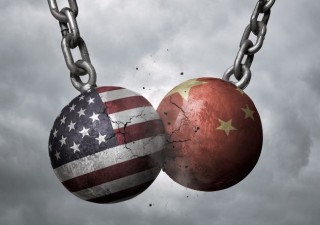IPOPHL: The importance of effective and adequate IP rights
03 July 2023

In a recent statement on the Regional Comprehensive Economic Partnership (RCEP) coming into force earlier this month in the Philippines, Director General Rowel Barba said that the Intellectual Property Office of the Philippines (IPOPHL) anticipates a regional value chain of innovation and creativity that is firmly based on openness, effectiveness and collaboration.
“Chapter 11 or the Intellectual Property Chapter of RCEP, which was negotiated by IPOPHL, affirms the imperative to reduce impediments to trade and investment through the effective and adequate creation, utilization, protection and enforcement of IP rights,” he said.
Barba explains that it recognizes members’ different levels of economic development and capacity, differences in national legal systems, the need to maintain an appropriate balance between the rights of IP right holders and the legitimate interests of users and the public interest, and a transparent IP system that helps provide confidence to right holders, among others.
He added: “Filipino IP owners and rights holders doing business in any of the RCEP member countries could be assured of more harmonized and predictable rules and practices as RCEP members commit to ratify and accede to key international agreements on IP. This ensures the protection of the IP rights of Filipinos outside of the Philippines, particularly in countries signatory to RCEP.”
He claimed that IPOPHL was ready and had already improved its services before the RCEP Agreement went into effect in the Philippines. Aside from concluding accession and ratification of significant international IP treaties, it has also streamlined its processes, offered trustworthy e-services for IP administration, constructed an open IP system and continued to strengthen IP enforcement in both the real world and online.
“Moving forward, we hope to use various provisions to our advantage, such as the Genetic Resources, Traditional Knowledge and Folklore (Article 11.53), which is a unique feature for a free trade agreement,” he said.
According to Barba, with the rich indigenous, cultural and environmental resources in the Philippines, the protection of genetic resources, traditional knowledge and folklore has been an offensive interest for the Philippines even at the start of the negotiations. He stressed how crucial it is to recognize the need to protect and adequately safeguard the intellectual rights of indigenous and cultural communities, as well as their ownership over products sacred to their culture and communal identity.
“As RCEP also puts emphasis on cooperation, IPOPHL will step up to the plate,” he added. “We will come to our new partners’ aid in complying with their commitments and finding the best protection and enforcement measures appropriate for their innovative and economic needs. We will impart our best practices and help transform the region into a model for using IP judiciously and flexibly while cognizant of the rules-based trading system.”
- Excel Dyquiangco






